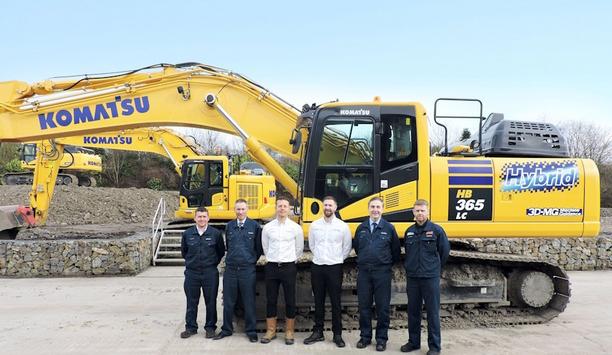While the technology sector was once considered the most desirable in terms of salary and job security, recent layoffs have exposed its vulnerability. Job security has always been a sought-after job benefit, and one career path that’s often overlooked is skilled trades.
The skilled trades industry stands out as a resilient sector, offering the next generation of workers a promising path for growth and professional development through on-the-job experience and education.
Significant talent gap
With the retirement of Baby Boomers leading to a significant talent gap, current trade professionals are now more determined than ever to attract younger workers to the industry.
Regrettably, many students in high school fail to see the value of pursuing a career in skilled trades. In a 2022 survey, only 16% of students noted they were likely to consider a career in the skilled trades. However, as other industries face a high level of uncertainty, the skilled trades offer stability and constant demand for services such as new construction, renovations, and climate change-resilient building improvements.
The Benefit of Trade Education
One of the major benefits of skilled trades education is its flexibility and room for career advancement
The skilled trades industry presents young professionals with unique opportunities for hands-on learning and digital skill development. And as the next generation begins to explore higher education alternatives to gain valuable life skills, hands-on training in skilled trades becomes increasingly appealing. In trade education, learning happens directly from experiences in the field, complemented by classroom training, on-demand video sessions, and even virtual reality (VR) simulations. This approach ensures that graduates are well-prepared to start their careers immediately, avoiding the burden of college debt.
One of the major benefits of skilled trades education is its flexibility and room for career advancement. Unlike traditional four-year college programs, trade school education typically lasts around two years, making it accessible to individuals at different stages of their careers.
Moreover, the skilled trades industry provides workers with continuous opportunities for education and specialization. Formal certifications or licensing requirements define career paths in the skilled trades, and workers can pursue additional certifications to open new avenues for advancement.
Beyond Traditional Training Techniques
To maintain its resilience, the skilled trades industry is embracing technology
To maintain its resilience, the skilled trades industry is embracing technology, integrating tech-focused learning methods and digital platforms to streamline processes and increase efficiency. Gen Z is inherently tech-savvy, and incorporating new technologies in training and in the field will attract these younger generations to the industry.
This can include implementing tech-focused learning methods, embracing gamification, or transitioning from physical code books to digital platforms to streamline processes, make work more efficient, and increase engagement on new tools coming onto the jobsite. While the skilled trades industry offers numerous opportunities for growth and professional development, it is essential to acknowledge that these professions are not without their risks.
Enhancing safety training
Skilled trade workers, particularly those in fields like construction, electrical work, and fire safety, are often exposed to serious fire, electrical, and related hazards on the job. Ensuring the safety of these workers is of paramount importance.
One powerful solution to enhance safety training is the integration of digital learning technology
One powerful solution to enhance safety training is the integration of digital learning technology, which is uniquely suited to provide deep immersion simulations. By incorporating virtual reality (VR) and augmented reality (AR) training modules, skilled workers can experience lifelike scenarios that simulate potential hazards in a controlled environment. This kind of training allows them to develop critical skills, practice emergency response procedures, and make informed decisions without facing real-life risks. By leveraging digital learning technology, the skilled trades industry can better equip its workers with the knowledge and experience needed to enhance job safety and minimize workplace accidents.
The Bottom Line
The skilled trades industry presents a promising future for the next generation of talent. It offers resilience in the face of economic fluctuations and provides abundant opportunities for growth and professional development through hands-on training.
To attract a new generation to this industry, organizations must be willing to not only emphasize value, in terms of resiliency salary, to candidates, but also show that the industry is moving towards innovation just like any other profession. As the industry continues to embrace technology, such as digital learning, it will remain relevant and appealing to young, technologically adept individuals seeking rewarding and stable careers. And by showcasing the value and potential of skilled trades, we as skilled trades professionals can inspire more individuals to consider this path and take the first step toward a successful and fulfilling career.













